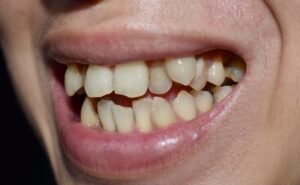Causes of Low Sex Drive

Losing interest in sex occasionally is not unusual. Additionally, it is common for your partner’s sexual interest not to equate to yours. However, extended periods of low libido should concern you. The reduced sexual function might be a health scare indicating that you need medical attention. Plano, TX age management specialist Dr. Christopher J. Riegel asserts that low sex interest can affect your overall wellbeing and make you anxious about your intimate relationship. Low libido is not a preserve for a particular sex. Both men and women experienced low sex drive for various reasons, including health and lifestyle habits. For instance, hormonal changes during pregnancy and just after delivery (during breastfeeding) can dampen a woman’s sex drive. Additionally, fatigue and the pressures of caring for a newborn child can change a woman’s sexual desire.
What are the causes of reduced sex drive in men and women?
Men and women have different causes of low libido. For instance, low testosterone levels are a common cause of reduced sexual interest in men. On the other hand, hormonal changes affect the drive in women. In both sexes, the issue might be medically related or lifestyle habits. Some of the common causes of reduced libido in males and females include:
Chronic health conditions
The following severe health concerns are likely to affect your sexual function:
- Diabetes. Increased sugar levels might result in vein damage, thus affecting your vascular system. The effects of the damage might cause erectile dysfunction in men and reduced circulation to the genitals in women. Diabetes in females might also increase their risks of bladder and yeast diseases that might make sex uncomfortable.
- Heart condition. Heart diseases can damage your blood vessels, affecting your circulation. As a result, the blood flow to the genitals reduces, affecting lubrication and arousal.
- Osteoarthritis. Individuals experiencing joint stiffness and pain might find it challenging to engage in intimate activities.
- Cancer. Most cancer treatments affect libido, making you lose interest in sex.
- High blood pressure. Hypertension affects blood circulation, thus reducing the efficiency of blood flow to your genitals.
Psychological issues
Psychological factors like mental health issues, including depression, poor self-esteem, anxiety and fatigue, have increased chances of affecting your sexual function. Relationship issues like mistrust, poor communication, reduced sexual attraction and conflicts may also lower your sex drive.
Sexual problems
Sometimes low libido might result from a physical factor that makes sex less fulfilling. For instance, you might find getting intimate challenging because of issues like:
- Erectile dysfunction
- Inability to reach orgasm
- Issues with ejaculation
- Vaginal dryness
- Vaginismus (involuntary vaginal tightening)
Aging
Low libido is not inevitable with aging. Unfortunately, most men and women experience low sexual function as they age. Common causes include:
- Reduced testosterone levels
- Low estrogen and testosterone levels in women, especially during and after menopause
- Age-related concerns like reduced mobility
- Medications side effects
Lifestyle habits
Unhealthy habits like excessive drinking of alcohol for a long can interfere with your sexual function. Therefore, your doctor might advise you to limit your consumption if you want to function normally.
Low sex drive can be frustrating. While some causes are hormonal, others might indicate a severe underlying health concern. Talk to your healthcare provider to know when you need help with reduced sexual function.





